The Meaning of Bob Dylan’s “Shelter from the Storm”
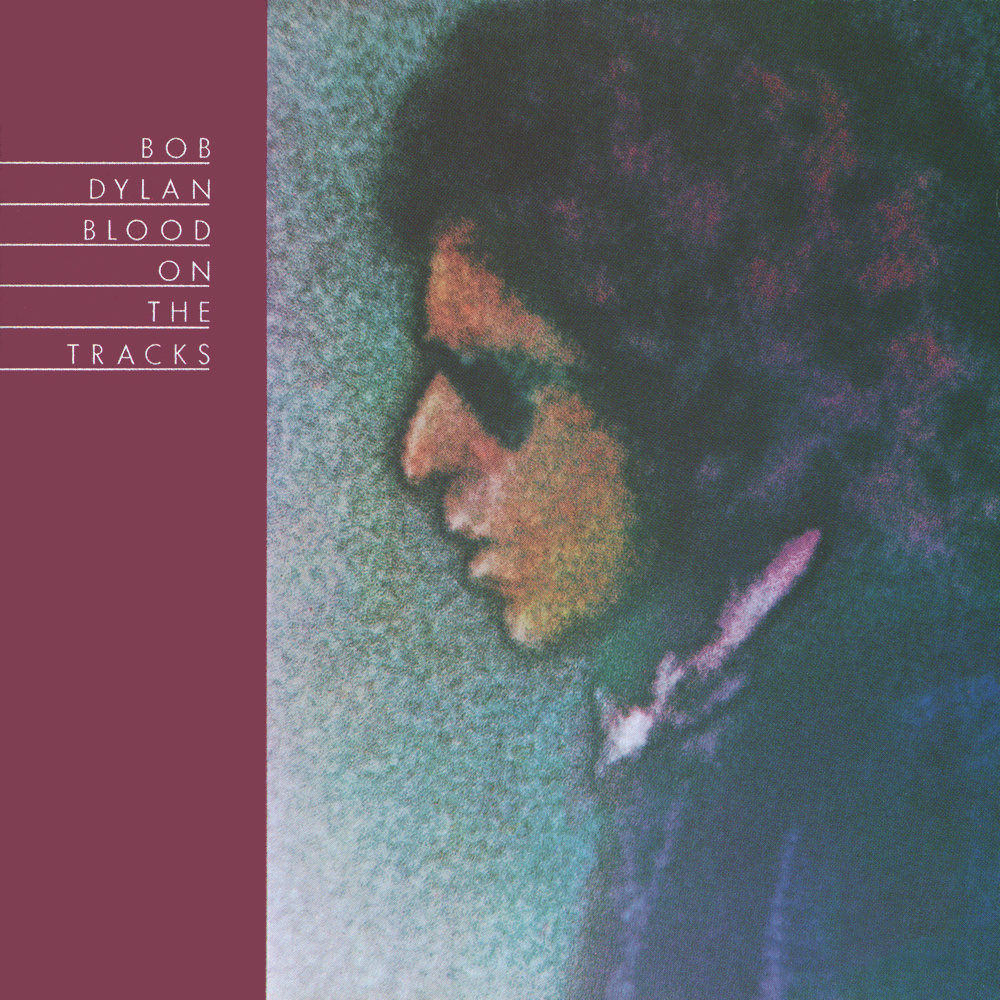
Bob Dylan has many famous songs, and there are several periods throughout his life where fans debate his best work to be found. One classic song that exemplifies the poetic style of Bob Dylan, not lending itself to pop sensibilities but rather painting a vivid picture within the lyrics, is “Shelter from the Storm”.
Released in 1975 on Dylan’s fifteenth studio album, Blood on the Tracks, “Shelter from the Storm” takes its time offering Dylan’s vision of love as something that can make one feel safe even during the hardest times.
But that’s not all. Dylan’s lyrics also touch upon the less romantic side of a relationship, where a partner may enable unhealthy habits, or even abuse one another. No matter what conspires between them, when they are together it feels like taking shelter from the storm of life’s hardships, so the relationship prevails.
Today, we’re going to take a deep dive into “Shelter from the Storm” — all ten verses of it — and make our best attempt at picking apart Dylan’s seemingly complex imagery. He is known for long-form songwriting, and this is one of the most widely-recognized examples.
“Shelter from the Storm” Origins
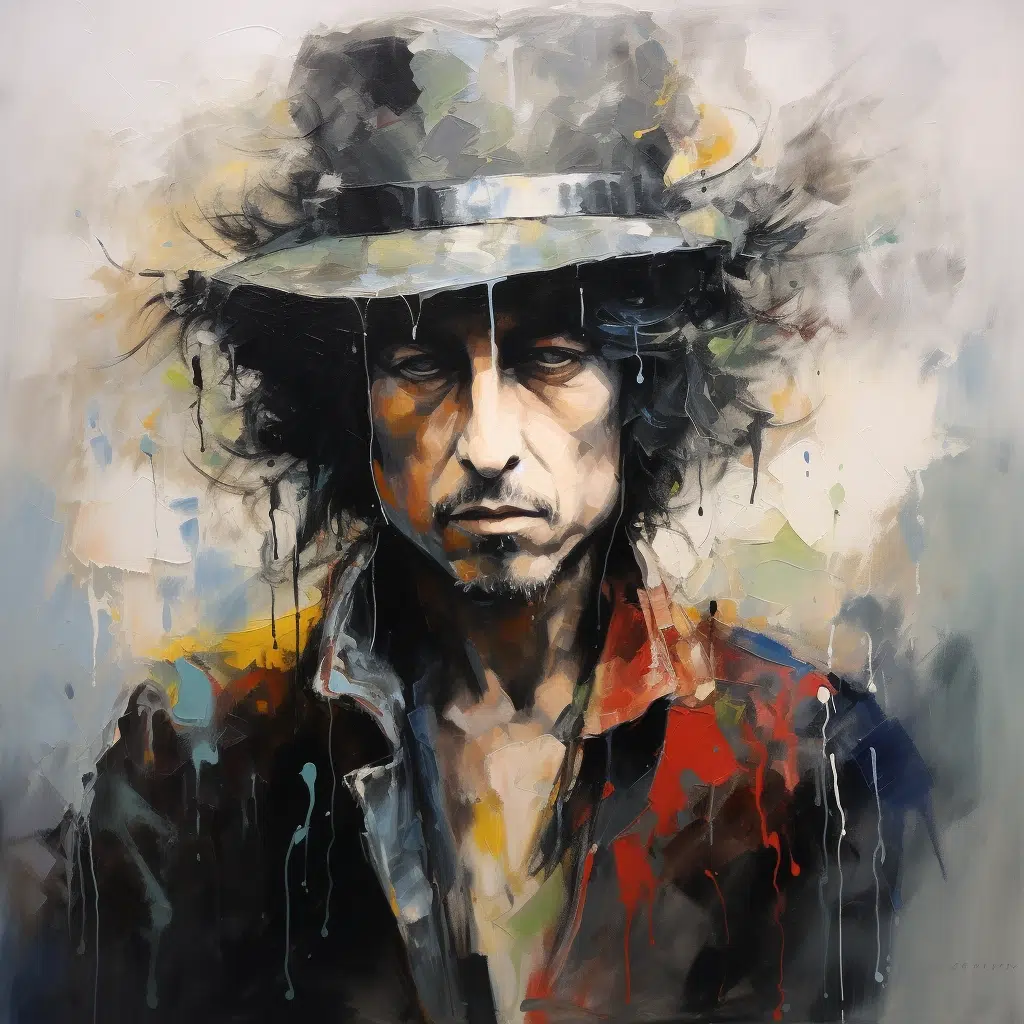
Before we get into dissecting the lyrics, it’s helpful to get a big picture outlook on what was happening in Bob Dylan’s life at the time of his writing them. During the making of Blood on the Tracks, Dylan’s marriage with his first wife, Sara Lowndes, was in a difficult state, and they ended up divorcing in 1977, just two years after the album’s release.
Dylan himself has never connected the dots between “Shelter from the Storm”, and other Blood on the Tracks songs with his own marriage, and he has even gone as far as denying any autobiographical connection with the songs.
Additionally, the album came at the end of what many see to be a creative slump for Dylan, as several of his previous few releases had been flops. Along comes Blood on the Tracks, an album that many see as a masterpiece.
Think what you want about how the circumstances of Dylan’s life in the mid-seventies might have been just right for the creation of what might be his best album — we’re just putting things into perspective.
“Shelter from the Storm” Lyrics Meaning
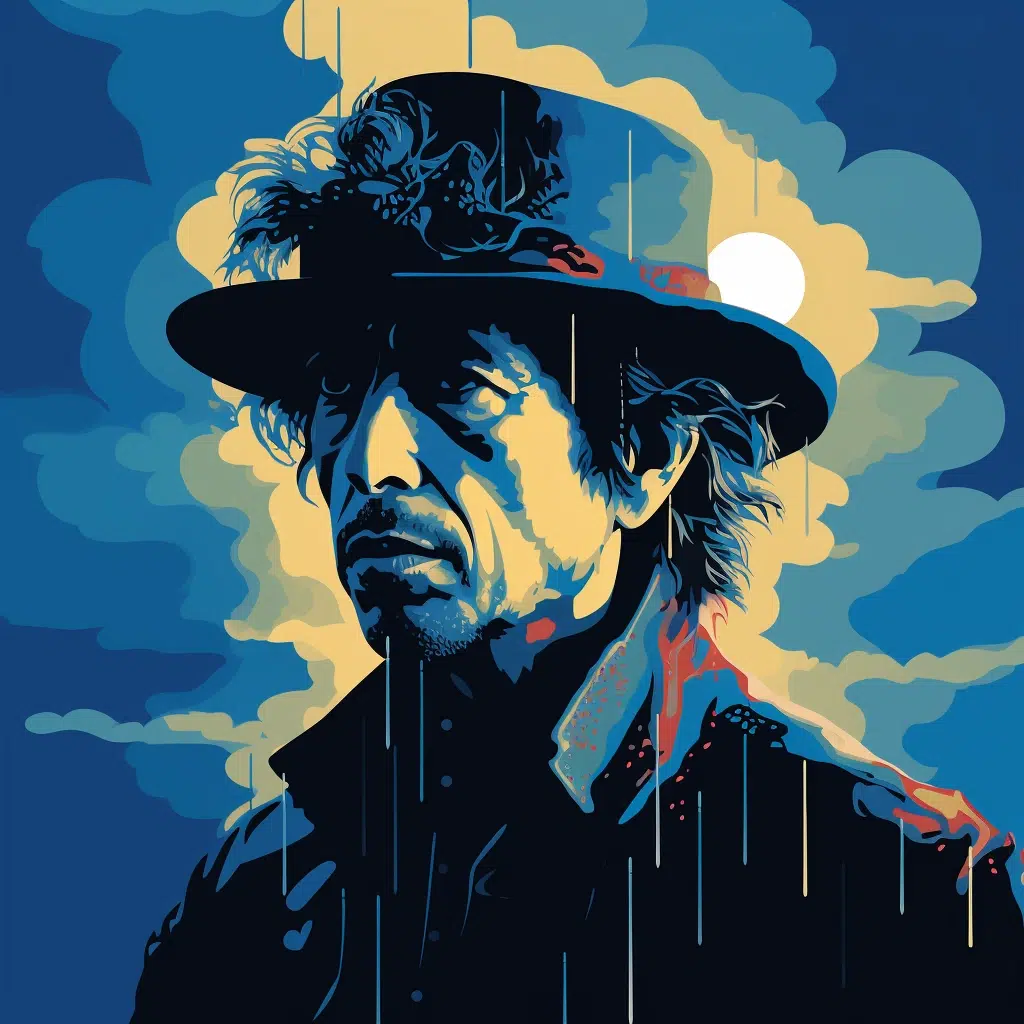
Now that we’ve got the backstory covered, it’s time to dive into the extensive lyrics to “Shelter from the Storm” and reveal the meaning that Dylan was exploring and presenting with this one.
A gentle acoustic intro opens the song, and Dylan maintains this melody as he sings with a nostalgic tone the first verse:
‘Twas in another lifetime
First verse to “Shelter from the Storm” by Bob Dylan.
One of toil and blood
When blackness was a virtue
The road was full of mud
I came in from the wilderness
A creature void of form
“Come in,” she said, “I’ll give ya
Shelter from the storm”
Here, Dylan looks back on an earlier time in his life, before he met the woman who later became the subject of this song. He remembers hardships, and “blackness” as a virtue.
What he means by “blackness” is evil or wickedness, such as having a “black heart.” The lyrics say that being bad was seen as virtuous in the place where Dylan came from.
When he came across this woman, he was a wild man, without any structure or form to his life. Nonetheless, she invited him in, and thus begins our love story.
Verse two is up next:
And if I pass this way again
Second verse to “Shelter from the Storm” by Bob Dylan.
You can rest assured
I’ll always do my best for her
On that I give my word
In a world of steel-eyed death and men
Who are fighting to be warm
“Come in,” she said, “I’ll give ya
Shelter from the storm”
He says that no matter what happens, he will always try to treat her the very best he can. The whole world is filled with loneliness and pain. The sentiment is one of gratitude, for having a warm place to find respite from the troubles of the world.
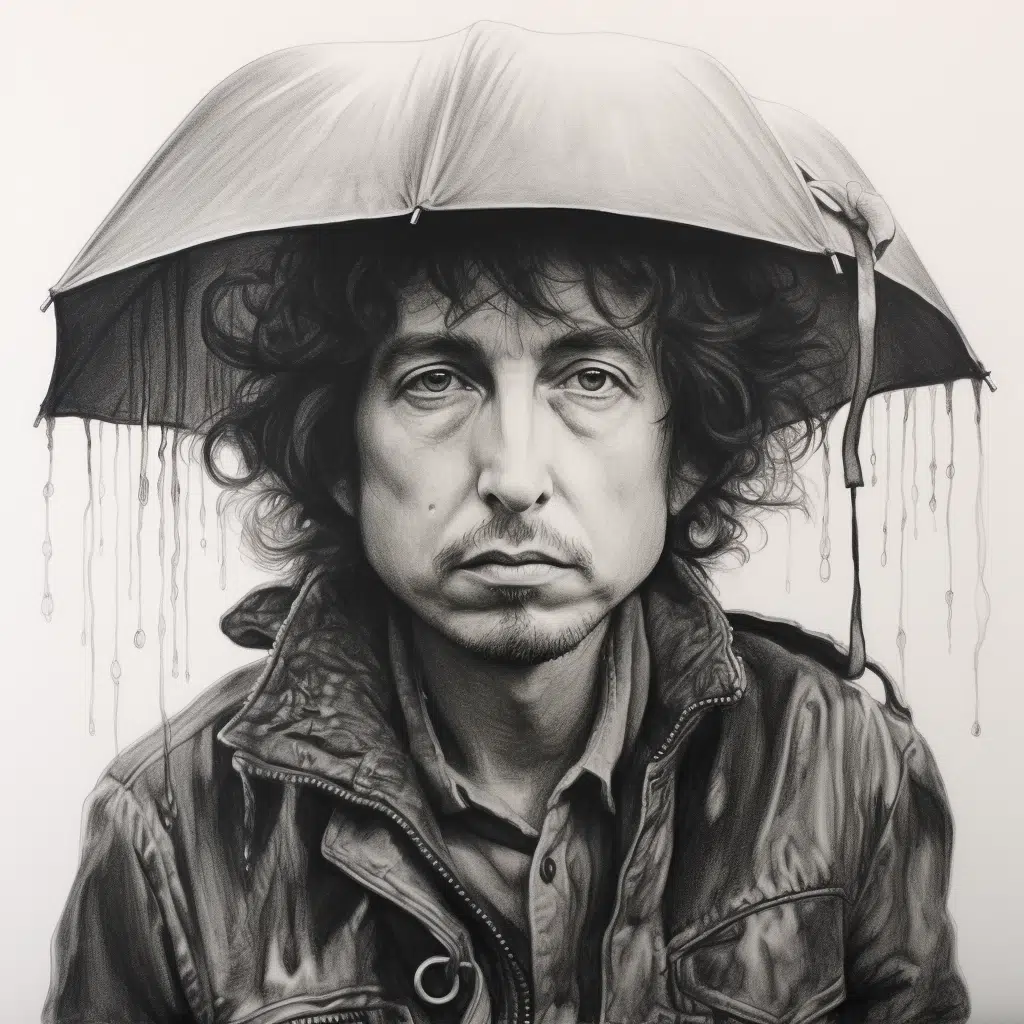
However, even with the feeling of safety, their relationship is not without its problems:
Not a word was spoke between us
Third verse to “Shelter from the Storm” by Bob Dylan.
There was little risk involved
Everything up to that point
Had been left unresolved
Try imagining a place
Where it’s always safe and warm
“Come in,” she said, “I’ll give ya
Shelter from the storm”
When Dylan sings about not speaking a word, he is speaking metaphorically. The pair had hardly scratched the surface of their connection, neither opening up to the other. Thus, nothing was resolved between them, as they always chose to avoid those deeper discussions.
Instead, she simply invites him to come closer, to forget about his problems, and pretend that everything is alright, again. This suggests trouble in paradise, presented as solace from actually facing it. A bit contradictory, if we’re trying to imagine this as a healthy relationship.
The fourth verse presents more gratitude for this woman’s place in his life:
I was burned out from exhaustion
Fourth verse to “Shelter from the Storm” by Bob Dylan.
Buried in the hail
Poisoned in the bushes
And blown out on the trail
Hunted like a crocodile
Ravaged in the corn
“Come in,” she said, “I’ll give ya
Shelter from the storm”
Dylan remains thankful that exhaustion, burnout, and persecution are not enough to sway his lover from him. She remains steady as ever, offering her love as “Shelter from the Storm”.
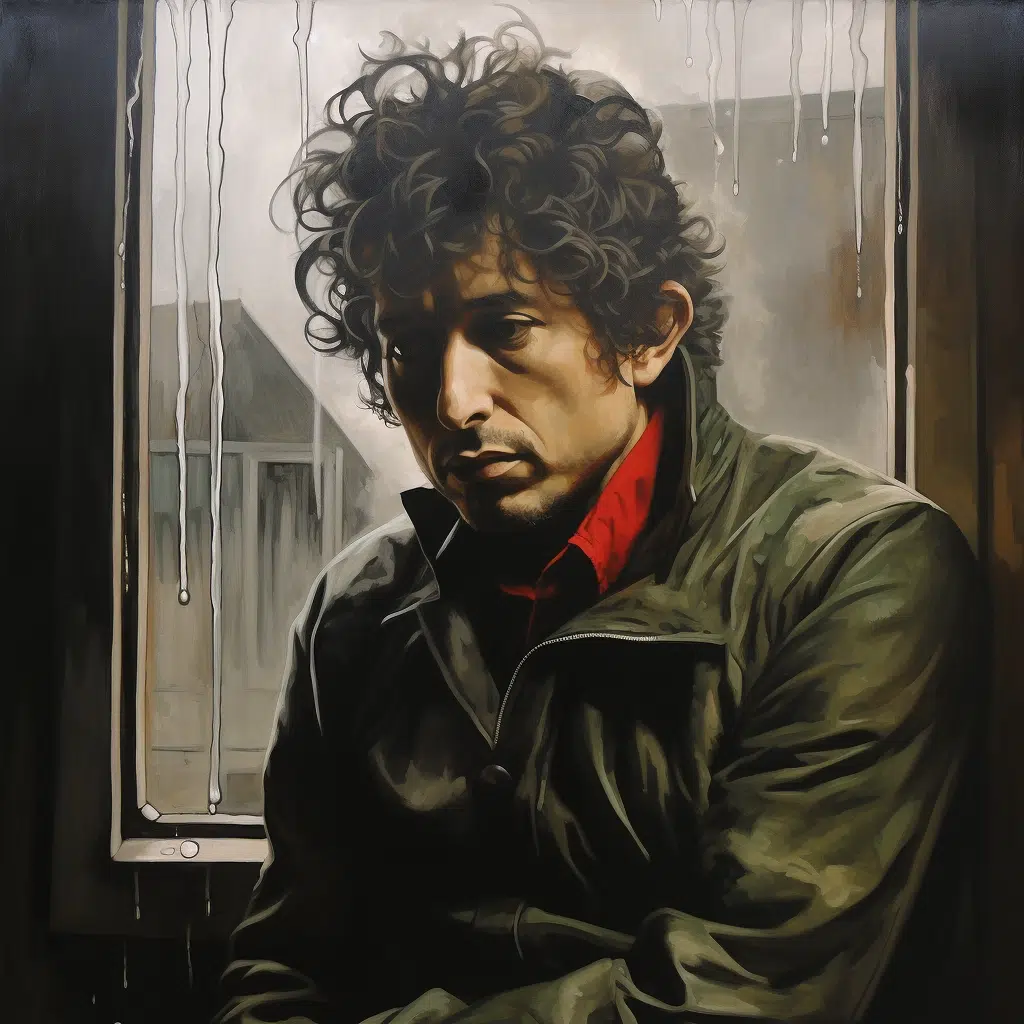
In the fifth verse, he presents himself as a martyr, and her as the savior who comes and makes it all disappear:
Suddenly I turned around
Fifth verse to “Shelter from the Storm” by Bob Dylan.
And she was standing there
With silver bracelets on her wrists
And flowers in her hair
She walked up to me so gracefully
And took my crown of thorns
“Come in,” she said, “I’ll give ya
Shelter from the storm”
His images of the woman with flowers in her hair, walking gracefully, presents a sense of innocence. Referencing the crucifixion of Jesus, whom according to the tradition died on the cross wearing a crown of thorns, Dylan flips the idea of the savior around, suggesting that a woman can simply absolve him.
The sixth verse illuminates once again the communication problems within the relationship:
Now there’s a wall between us
Sixth verse to “Shelter from the Storm” by Bob Dylan.
Something there’s been lost
I took too much for granted
I got my signals crossed
Just to think that it all began
On an uneventful morn
“Come in,” she said, “I’ll give ya
Shelter from the storm”
Dylan draws a strong juxtaposition between the feeling of safety that the relationship presides and the glaring elephant in the room: their hearts are truly worlds apart.
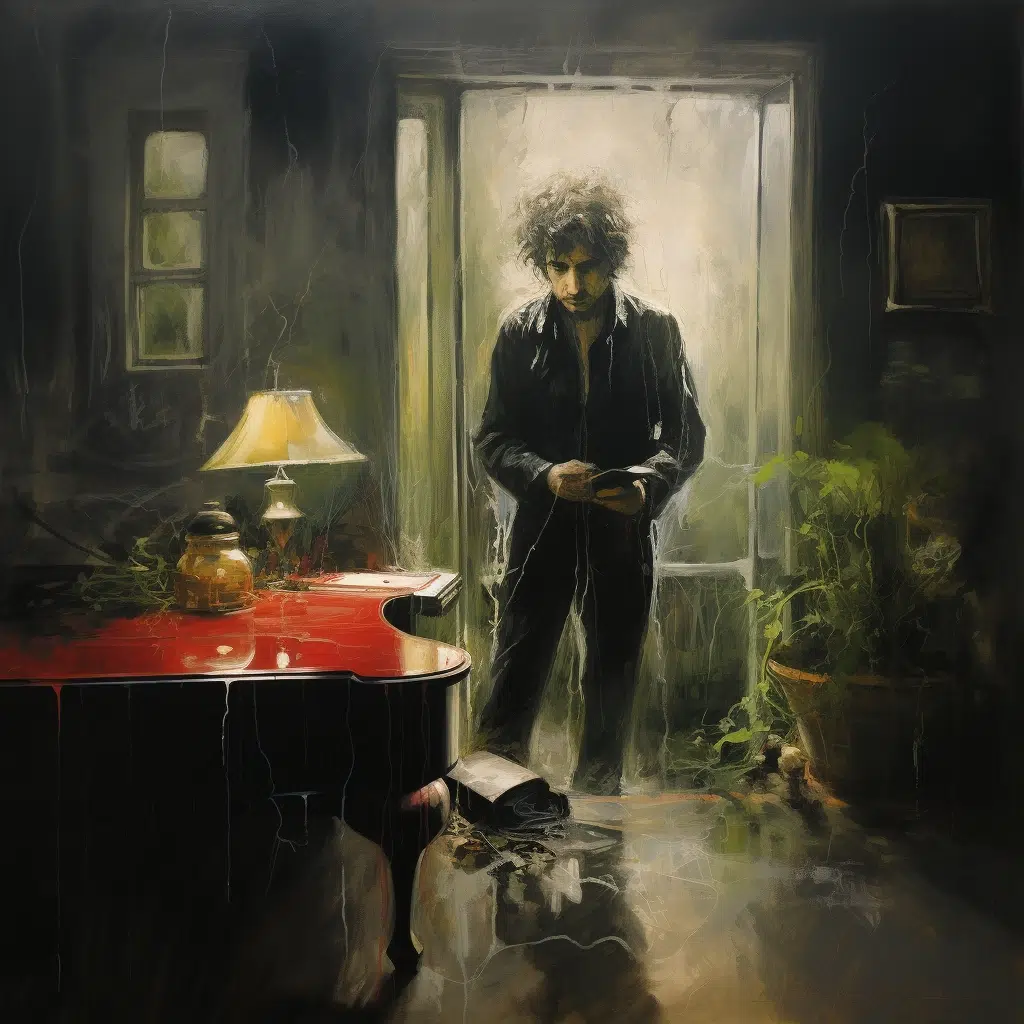
Earlier in the song, Dylan mentioned how things went unresolved, yet his woman continued to invite him into her safety. The new development in the sixth verse, with a wall between them suggests that Dylan should have taken the time to resolve these issues, and it might be too late.
He recalls the time when they first met, and how she was open to him, inviting him in from the hardships of his life. Perhaps, the failure of the relationship is his fault after all.
Well, the deputy walks on hard nails
Seventh verse to “Shelter from the Storm” by Bob Dylan.
And the preacher rides a mount
But nothing really matters much
It’s doom alone that counts
And the one-eyed undertaker
He blows a futile horn
“Come in,” she said, “I’ll give ya
Shelter from the storm
The seventh verse takes “Shelter from the Storm” to an abstract and disorienting place, suggesting in itself that our narrator’s estrangement from the woman who once offered him shelter is causing him a great deal of distress.
He sings of police officers walking on nails (something that a preacher might do), and the preacher riding the deputy’s horse. The world doesn’t make sense, but it doesn’t matter because Dylan is focused only on death.
The undertaker invites him in, suggesting that his old self is dying because of his inability to resolve the situation. Calling the undertaker one-eyed implies that this character is only able to see one side of things.
Things continue to come from this place of abstraction in the eighth verse:
I’ve heard newborn babies wailing
Eighth verse to “Shelter from the Storm” by Bob Dylan.
Like a mourning dove
And old men with broken teeth
Stranded without love
Do I understand your question, then
Is it hopeless and forlorn
“Come in,” she said, “I’ll give ya
Shelter from the storm”
Here, Dylan uses a series of uncomfortable and sad images to convey the way that he’s feeling. He has lost the one thing that once made him feel safe. Now the world seems much scarier, but there’s nothing he can do to change it.
Ironically, the person who was once his place of shelter, which he squandered, is now the reason for his pain.
With the ninth verse, the imagery and metaphor shift once again:
In a little hilltop village
Ninth verse to “Shelter from the Storm” by Bob Dylan.
They gambled for my clothes
I bargained for salvation
And she gave me a lethal dose
I offered up my innocence
And I got repaid with scorn
“Come in,” she said, “I’ll give ya
Shelter from the storm”
Dylan describes feeling lost without his love, finding his way to a small village (perhaps another hope of shelter?) but they only took the clothes off his back.
This suggests that he tried to get her back, but instead she offered him “a lethal dose” of reality, shattering his illusions and his hopes for reconciliation.
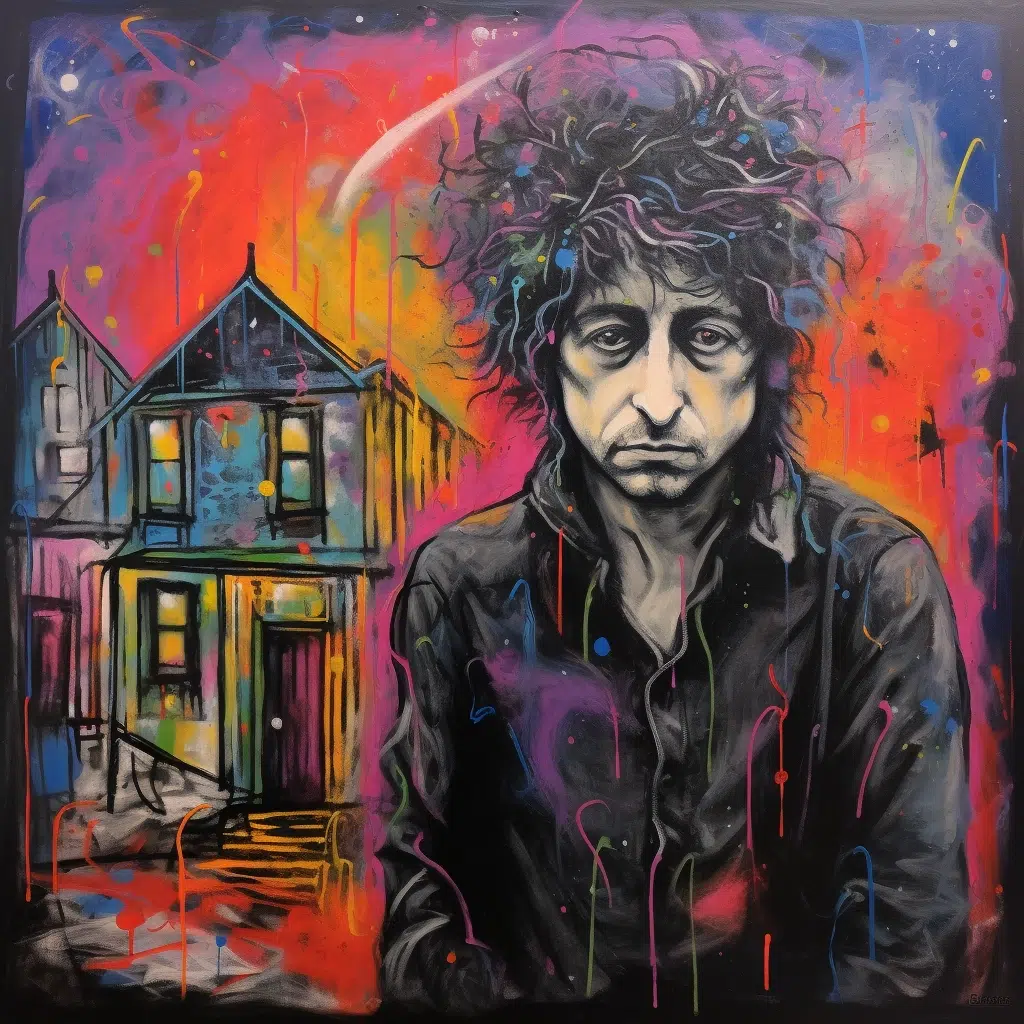
The tenth and final verse brings us to a painful climax, showing the narrator’s regret:
Well, I’m living in a foreign country
Tenth verse to “Shelter from the Storm” by Bob Dylan.
But I’m bound to cross the line
Beauty walks a razor’s edge
Someday I’ll make it mine
If I could only turn back the clock
To when God and her were born
“Come in,” she said, “I’ll give ya
Shelter from the storm”
Dylan is still lost, seemingly years down the line. He knows he’s going to “cross the line”, or die soon (perhaps he’s “Knockin’ on Heaven’s Door”?). He knows there is a fine line that separates beauty from pain, and he still hopes to find himself on the right side of that line.
He ends with a hopeful reminiscence, wishing that he could go back to the beginning of time. When he says that she was born with God, it represents his view of her as his salvation. It seems he would do anything to find his way back to shelter, but alas.
As our old friend Robert Hunter, in the Grateful Dead song “Brokedown Palace”, would say: “Lovers come and go, the river roll, roll, roll.” Love may die but life goes on, until it’s your time to go.
Listen to “Shelter from the Storm” by Bob Dylan below.
Bob Dylan – “Shelter from the Storm”